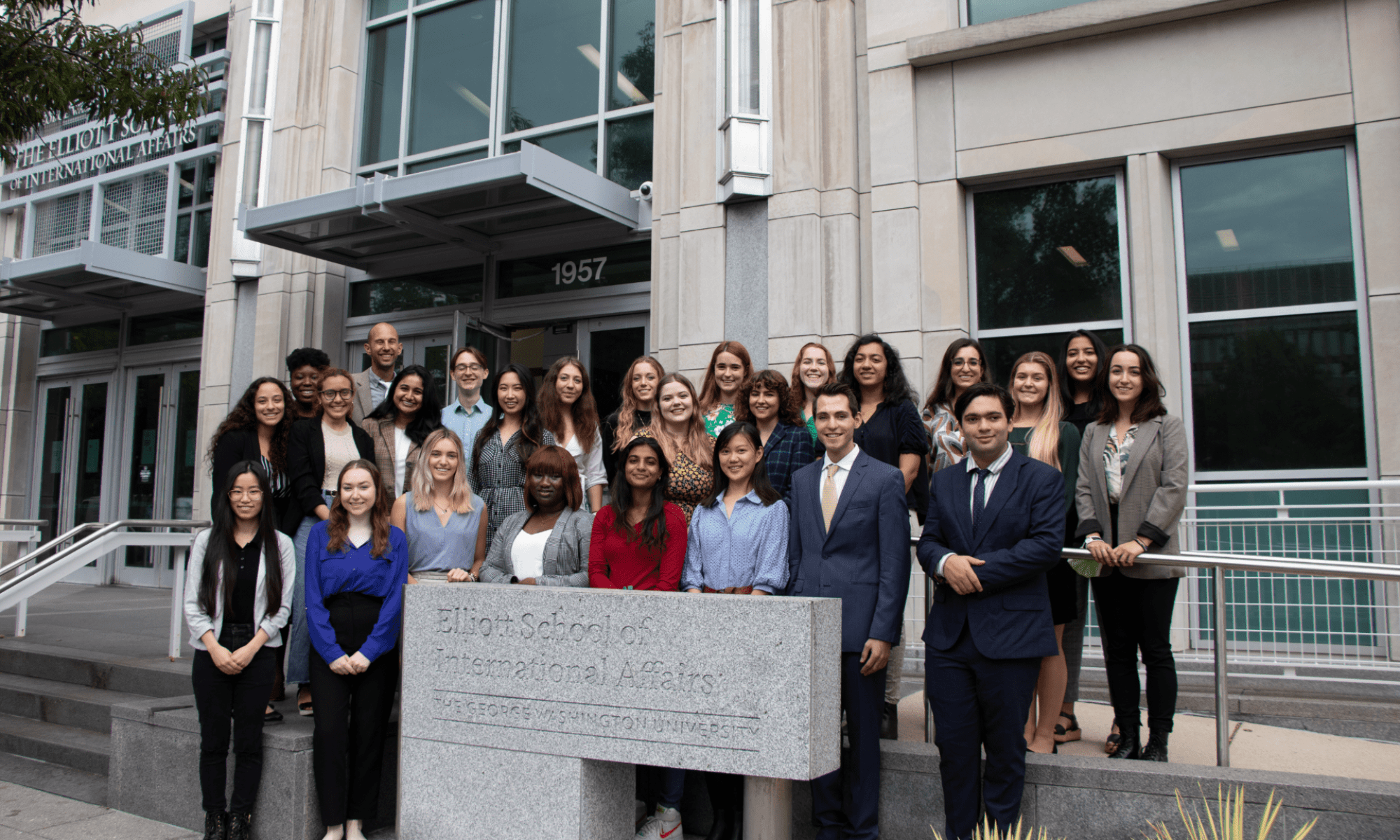Author: Jacob Winn
Date Published: 4 April 2021
Jacob Winn’s full paper can be found in the Spring 2021 Issue of the Cornell International Affairs Review (CIAR) here.
Populism—the political appeal made by, or on behalf of, ‘ordinary citizens’ against political elites—swept across Europe after the Great Recession. Globalization, an exodus of youth from rural areas, and loss of traditional manufacturing jobs economically and socially displaced communities across the continent. Concurrently, European governments implemented broad austerity measures that reduced government program success in the name of economic growth. Alongside rising waves of internal and external migration, these factors granted a modern group of far-right political parties more electoral success in national and European Parliamentary elections compared to recent decades. This phenomenon is most visible in the United Kingdom, where the Brexit movement, referendum, and recent withdrawal from the European Union demonstrated the great influence that populist movements have on a country’s politics and policies.
The Brexit movement took root within the Conservative Party, and after a period of infighting, its disciples have come to dominate both the Party in Parliament and the Party’s electorate. Where David Cameron’s premiership promoted austerity and social liberalism—his party led the charge for same-sex marriage legalization less than a decade ago—Boris Johnson’s Government has shifted. So far, Johnson has focused on implementing policies from the neglected mid-twentieth-century tradition of “One-Nation Conservatism”: The paternalistic Conservative ethos that the government has a duty to provide a good life—thus ensuring the provision and longevity of the British way of life. At the same time, Johnson’s government is more socially conservative, moving to implement a points-based immigration system. On the part of the electorate, a similar shift has occurred: While Conservatives abandoned their hold on most urban areas, they have ubiquitously penetrated the Labour Party’s “Red Wall” in the English North significantly by promising to “Get Brexit Done”. This vowed to ensure the North its traditional heartland status, and by running non-elite, local candidates who promised to ‘shake up’ London-centric politics.
With all of this in mind, I sought to shed more light on how these changes play out. Scholarship has explored populism at length—including European populism—but has not yet provided detailed accounts on how a populist movement co-opts an existing political order, as these ideas co-opted the Conservative Party in the United Kingdom. In my research project, I asked the following question: Why has the Conservative Party changed so markedly in the years following the Brexit referendum, and what explains the Party’s rhetorical and general policy changes as well as its factional shifts?
I placed my research within an ongoing scholarly debate on the causes of modern populism. One school of thought views voters as “demanders” of populism that set the agenda for what populist leaders will discuss, while another school of thought views parties and elites as the key “suppliers.” However, a new school of thought, which I call the ‘Third Way’ approach, looks more directly at the relationships between voters and politicians. Building on these scholars’ work, I designed a study focusing its attention on what I call ‘Party Actors’: The Parliamentary or party staffers, youth group members, and local Councilors that sit in the middle of the Party and the electorate. I used a semi-structured, qualitative approach towards my fifteen interviewees, and conducted a thematic analysis on their answers.
The first of my two key findings was a feedback loop between the English working class and the Conservative Party: As the Conservative Party became dominated by ‘anti-elite rhetoric’, it fled increasingly left-wing urban areas towards rural, formerly Labour strongholds in the English North that experienced a lack of ‘acknowledgement’ from elites. Workers who felt that globalization and London-centrism was harming their way of life highly preferred to vote for ‘people like them’ instead of urban elites. The new class of Members of Parliament, with its empowered majority, claims the mandate to represent these voters and promises to ensure their best interest: Northern renewal, local healthcare, restricted immigration, and more police officers to protect them. All-in-all, there has been a “decoupling of political authorities and citizens” in the lead-up to Brexit, continued between Conservative Party’s political authorities and its voters until the 2019 election. The resulting political realignment has placed the Conservative Party in its most advantageous electoral position in decades and realigned the core ideological tenets within the party.
My second finding was what my interviewees and I called a “libertarian-authoritarian dichotomy.” Without morally loading the terms, a ‘libertarian Conservative’ was described as someone who supports an increasingly small role for the government in the economy and people’s social lives, while an ‘authoritarian Conservative’ is increasingly willing to intervene in economic or social affairs, such as by expanding the NHS, while restricting immigration. Most libertarian Conservatives in Parliament sought to remain in the European Union: Today, they have either resigned, or gone silent as Johnson chose his cabinet from the ‘Get Brexit Done’ loyalists of the 2019 Parliamentary election campaign. Voters viewed authoritarian Conservatives as people who could ‘lead Britain better than the EU could,’ though interviewees also noted that their new electorate considered Johnson’s Conservative Party to represent them better than the London-based ‘Etonians’ or alumni from ‘Oxbridge’.
This research explicates the burst of populism seen across Europe and helps explain the post-Brexit political realignment in the U.K. Future research should focus on applying the Third Way approach and ‘libertarian-authoritarian dichotomy’ cross-nationally, whether by looking at Brazil’s Bolsonaro, France’s National Rally Party, Mexico’s MORENA, or the United States’ Donald Trump.
Policy makers interested in “inoculating” their populations against populism might also consider implementing economic and social policies preventing the grievances that lead to the ‘Worker-Party feedback loop’ that this research describes—preventing the decoupling of citizens from political authorities as seen in the United Kingdom. Such policies might rigorously re-invest in opportunities for communities and regions that have been ‘left behind’ by globalization; lawmakers should also consider combating regional and individual income inequality. Doing so may ensure that their country’s citizens feel that they can achieve a high quality of life without having to leave their homes or communities, and may generate feelings of respect from national leaders.
Finally, on the supranational level, anti-European Union populism seems to arise when stagnant wages, high unemployment, underdeveloped infrastructure, and perceived erosion of culture can be blamed on “elites”—especially when these elites are of a different national origin. To the extent that austerity policies provoke these conditions, these policies must be either avoided or mitigated by all national governments and political parties that are concerned with a political turn against democratic norms. Finally, in the medium to long-term, policymakers within the European Union can adapt to Euroscepticism through further democratizing reforms that empower the European Parliament and engage in deeper MEP constituent services, bringing Europe to the local level. By recognizing constituencies on a more local basis, the ‘European Union’ can come to be seen not as synonymous with “elite”, but as a “protector of Europe” that fits more comfortably within countries’ national self-identities.
Bibliography
Bekhuis, Hidde, Roza Meuleman, and Marcel Lubbers. “Globalization and Support for National Cultural Protectionism from a Cross-National Perspective.” European Sociological Review 29, no. 5 (2013): 1040–1052. https://doi.org/10.1093/esr/jcs080.
Blinder, Scott, and William Allen. “UK Public Opinion Toward Immigration: Overall Attitudes and Level Of Concern.” The Migration Observatory 28 (2016).
Búrca, Gráinne de. “How British Was the Brexit Vote?” In Brexit and Beyond, edited by Benjamin Martill and Uta Staiger, 46–52. Rethinking the Futures of Europe series. UCL Press, 2018. https://www.jstor.org/stable/j.ctt20krxf8.10.
Elgot, Jessica. “Boris Johnson Vows Push on Immigration Points System.” The Guardian, June 26, 2019. http://www.theguardian.com/politics/2019/jun/27/boris-johnson-vows-push-on-immigration-points-system.
Golder, Matt. “Far Right Parties in Europe.” Annual Review of Political Science 19, no. 1 (May 11, 2016): 477–97. https://doi.org/10.1146/annurev-polisci-042814-012441.
Halikiopoulou, Daphne and Sofia Vasilopoulou. “Support for the Far Right in the 2014 European Parliament Elections: A Comparative Perspective.” Political Quarterly 85, no. 3 (July 1, 2014): 285–88. https://doi.org/10.1111/1467-923X.12102.
Karakas, Leyla D. and Devashish Mitra. “Inequality, Redistribution and the Rise of Outsider Candidates.” George Mason University (2017). https://www.semanticscholar.org/paper/Inequality-%2C-Redistribution-and-the-Rise-of-∗-Karakas-Mitra/be92b671cdb2994d36960d153f847136fe667e6f.
Lubbers, Marcel, and Peer Scheepers. “French Front National Voting: A Micro and Macro Perspective.” Ethnic and Racial Studies 25, no. 1 (January 1, 2002): 120–49. https://doi.org/10.1080/01419870120112085.
Mair, Peter. “Ruling the Void: The Hollowing of Western Democracy.” New Left Review 42 (2006): 25-51. Retrieved from Cadmus, European University Institute Research Repository, at: http://hdl.handle.net/1814/6418. Retrieved from Cadmus, European University Institute Research Repository, at: http://hdl.handle.net/1814/28077
Mete, Vittorio. “Four Types of Anti-Politics: Insights from the Italian Case.” Modern Italy 15, no. 1 (February 1, 2010): 37–61. https://doi.org/10.1080/13532940903477872.
Mondon, Aurelien. “Populism, the ‘People’ and the Illusion of Democracy – The Front National and UKIP in a Comparative Context.” French Politics 13, no. 2 (June 2015): 141–56. http://dx.doi.org/10.1057/fp.2015.6.
Mudde, Cas. “The Populist Radical Right: A Pathological Normalcy.” West European Politics 33, no. 6 (2010): 1167–86. https://doi.org/10.1080/01402382.2010.508901.
Polyakova, Alina, and Anton Shekhovtsov. “ON THE RISE: Europe’s Fringe Right.” World Affairs 179, no. 1 (2016): 70–80. https://www.jstor.org/stable/26369498.
Post, Jerrold. Leaders and Their Followers in a Dangerous World (Ithaca: Cornell University Press, 2004).
Rodrik, Dani. “Populism and the Economics of Globalization.” Journal of International Business Policy, 2018. https://doi.org/10.1057/s42214-018-0001-4.
Scheuch, Erwin K. and Hans D. Klingemann. “Theorie des Rechtsradikalismus in westlichen Industriegesellschaften.” Hamburger Jahrbuch für Wirtschafts und Gesellschaftspolitik, 12 (1967): 11-29. As cited in Mudde, Cas. “The Populist Radical Right: A Pathological Normalcy.” West European Politics 33, no. 6 (2010): 1167–86. https://doi.org/10.1080/01402382.2010.508901.
Ünver, Hamid A. “Corrective Parties and Conveyor Coalitions: Explaining the Rise of Third Parties in European Politics.” Perceptions; Balgat 21, no. 2 (Summer 2016): 1–28. https://search.proquest.com/docview/1892979630/abstract/973196B434C6423BPQ/1.
Van Spanje, Joost. “Parties beyond the Pale: Why Some Political Parties Are Ostracized by Their Competitors While Others Are Not.” Comparative European Politics 8, no. 3 (September 2010): 354–83. http://dx.doi.org/10.1057/cep.2009.2.
Vasilopoulos, Pavlos, George E. Marcus, Nicholas A. Valentino, and Martial Foucault. “Fear, Anger, and Voting for the Far Right: Evidence From the November 13, 2015 Paris Terror Attacks.” Political Psychology 40, no. 4 (2019): 679–704. https://doi.org/10.1111/pops.12513.Vines, Emma, and David Marsh. “Anti-Politics: Beyond Supply-Side versus Demand-Side Explanations.” British Politics 13, no. 4 (December 1, 2018): 433–53. https://doi.org/10.1057/s41293-017-0053-9, p. 434.


